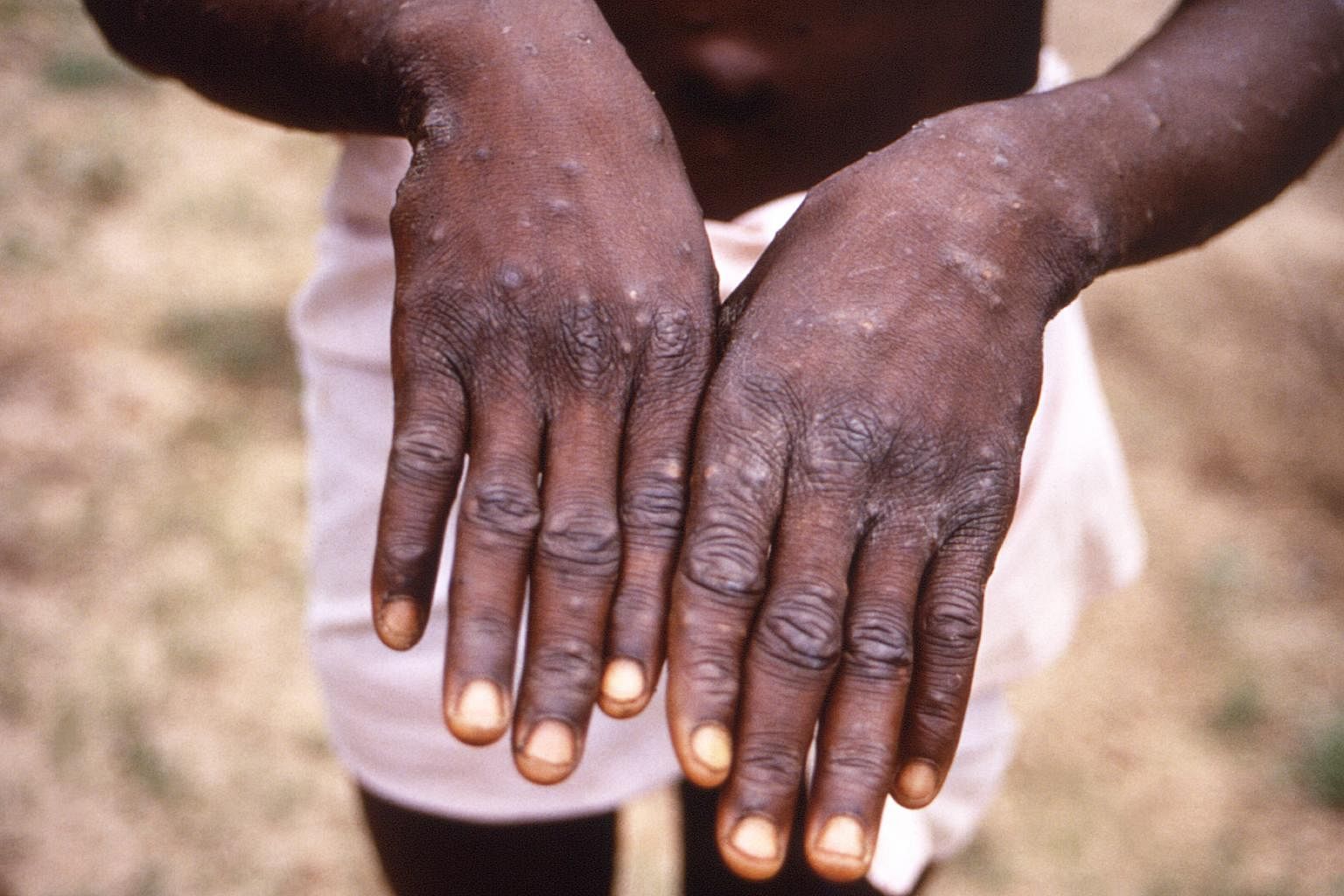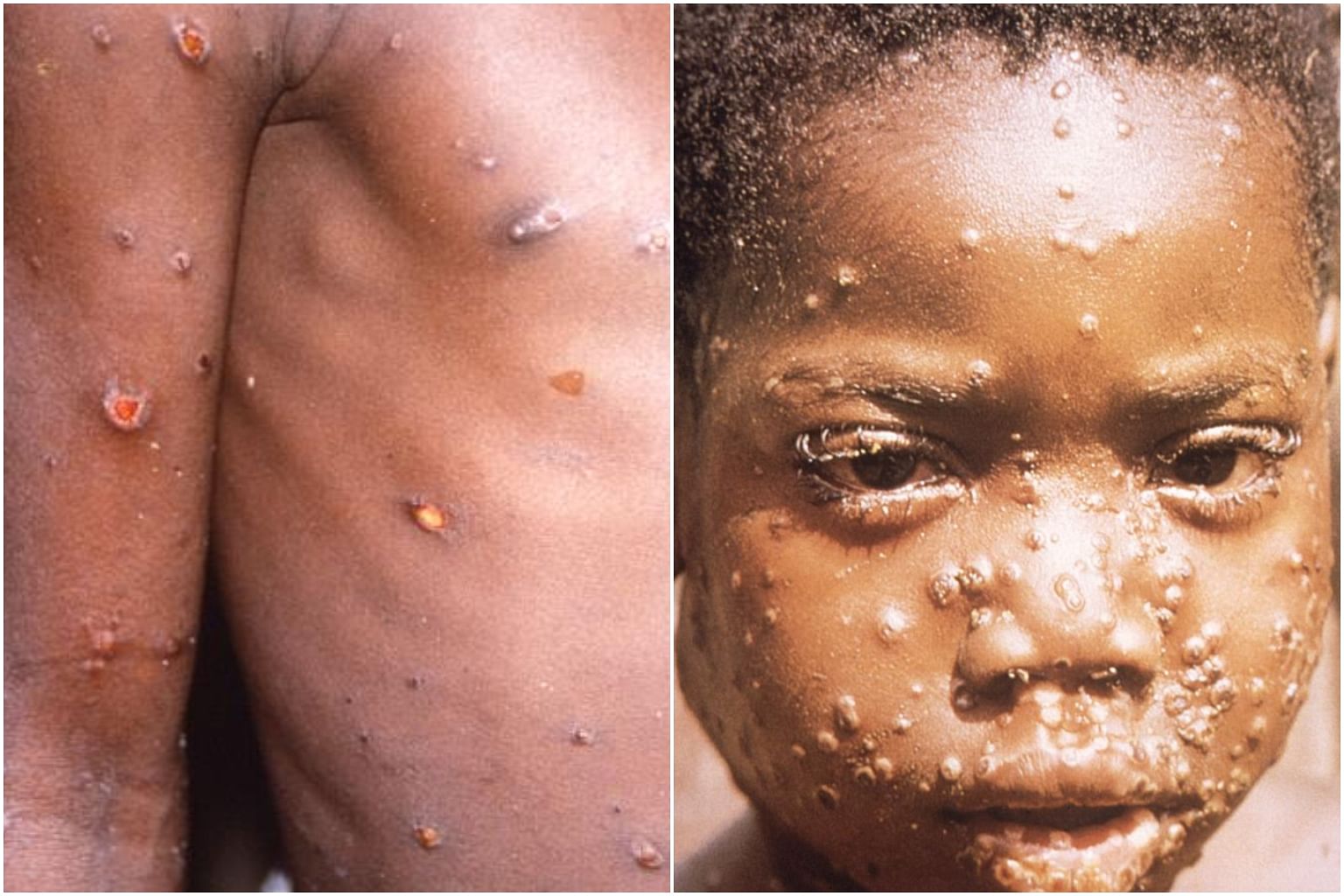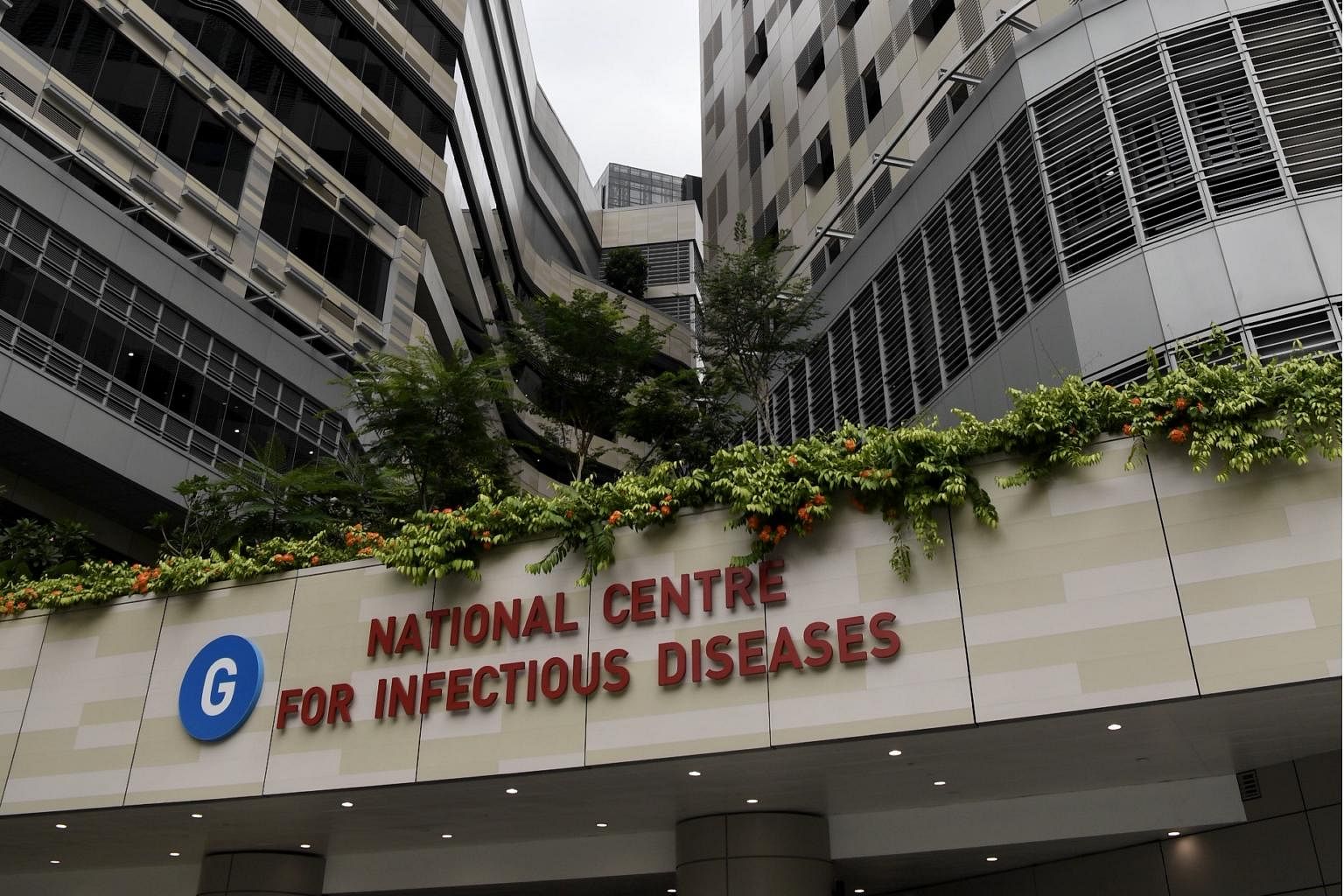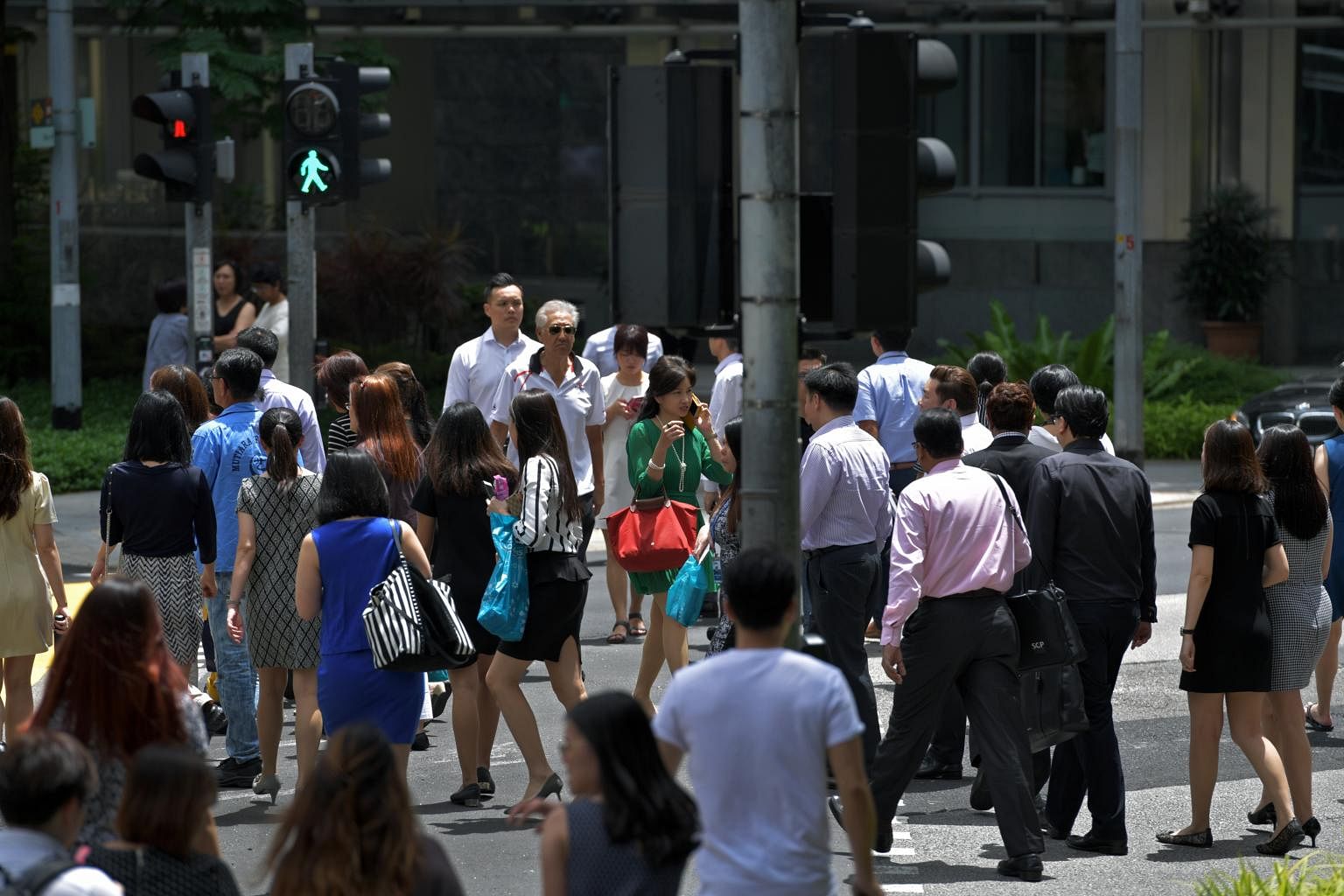First case of monkeypox in Singapore: 6 things to know about the virus
Sign up now: Get ST's newsletters delivered to your inbox

A monkeypox patient in the Democratic Republic of the Congo during an outbreak in 1997. The first case of monkeypox was reported in Singapore on May 9, 2019.
PHOTO: CDC
SINGAPORE - A Nigerian national tested positive for monkeypox on Wednesday (May 8), the first case of the rare viral disease reported here.
The man is currently in an isolation ward at the National Centre for Infectious Diseases and is in stable condition.
Twenty-two out of 23 individuals who have been identified as close contacts of the patient are under quarantine as a precautionary measure.
Here are six things to know about monkeypox.
1. What is monkeypox?
It is a rare disease caused by a virus that is primarily transmitted from animals to humans. The virus occurs sporadically in the central and western parts of Africa's tropical rainforest.
Since 1970, there have been reports of humans infected with monkeypox from 10 African countries - Democratic Republic of the Congo, Republic of the Congo, Cameroon, Central African Republic, Nigeria, Ivory Coast, Liberia, Sierra Leone, Gabon and South Sudan.
The first reports of the virus outside Africa were confirmed in the United States in 2003.
Last year, three cases of monkeypox were reported in Britain and one in Israel.
2. Why is it called monkeypox?

Skin lesions due to active cases of monkeypox during an outbreak in the Democratic Republic of the Congo in 1997.
PHOTO: PUBLIC HEALTH IMAGE LIBRARY/CDC, PUBLIC HEALTH IMAGE LIBRARY/WHO
The disease is called monkeypox because it was first discovered in laboratory monkeys in 1958.
3. What are the symptoms of monkeypox?
Those infected with monkeypox typically experience fever, headache, muscle ache, body ache, swollen lymph nodes and skin rash.
In some cases, the virus can cause serious complications like pneumonia, brain inflammation and eye infection.
Monkeypox is usually self-limiting, with most patients recovering within two to three weeks, according to the Ministry of Health (MOH).
Fatalities from monkeypox have varied between outbreaks, but have been less than 10 per cent in reported outbreaks, occurring mostly among young children.
4. How does monkeypox spread?

Transmission of the virus usually occurs when a person comes into close contact with infected animals, such as rodents, through the hunting and consumption of bush meat.
Bush meat is the meat of wild animals hunted and sold for food and is a popular source of protein in some parts of Africa.
Transmission of the disease between humans is possible but limited, as a person is infectious only when he has symptoms, particularly skin rash, said MOH.
The spread of the virus occurs primarily via droplet respiratory particles, and usually requiring prolonged face-to-face contact.
5. How is monkeypox diagnosed and treated?
The virus is diagnosed in the laboratory where the virus is identified by a number of tests conducted in specialised laboratories.
There are no specific treatments or vaccines available for monkeypox infection, but smallpox vaccination has proven to be 85 per cent effective in preventing the viral infection.
6. Is an outbreak likely in Singapore?

According to the World Health Organisation, there is currently no evidence that person-to-person transmission can sustain infections in the human population.
MOH and infections disease experts said the risk of monkeypox spreading in Singapore is low.


